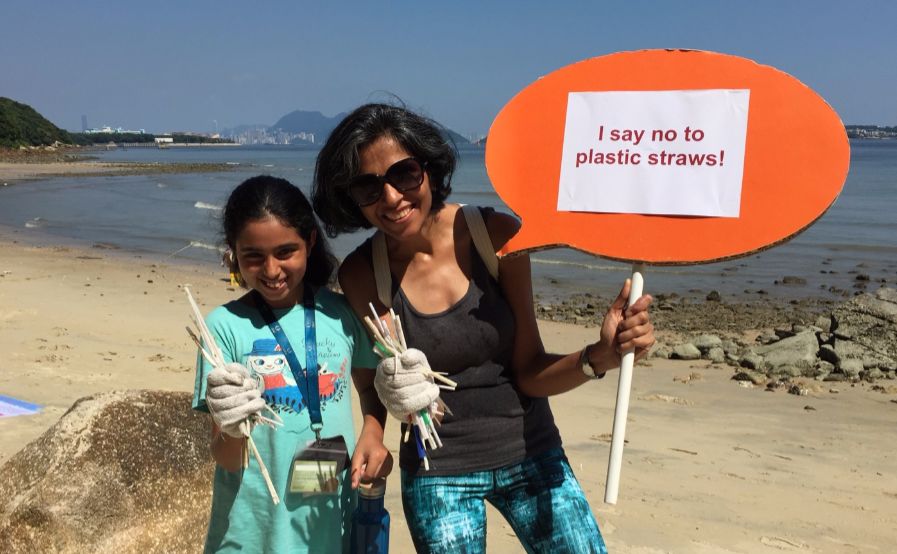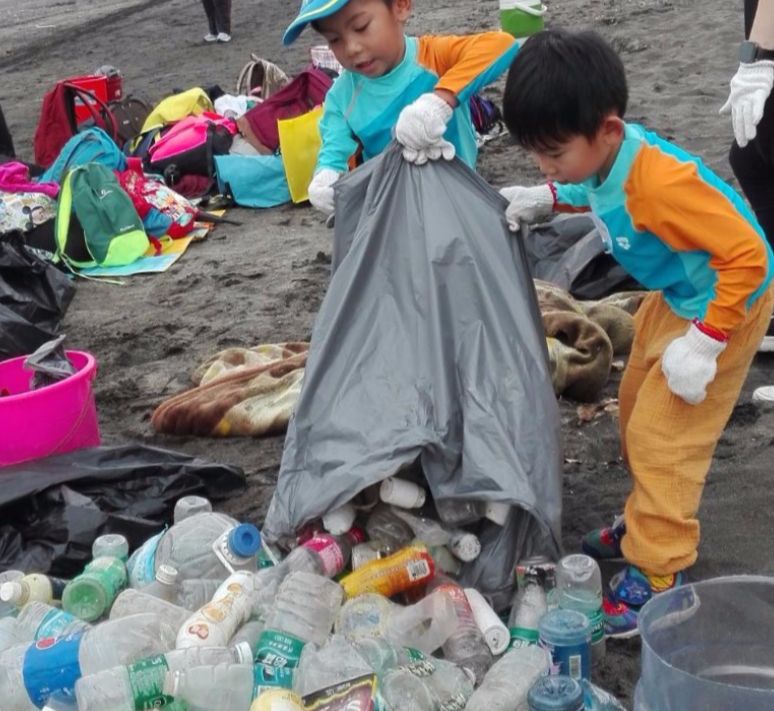[Sponsored] Should children still be encouraged to play at the beach? We have all seen the photos of mountains of plastic washing up on our beaches in Hong Kong and read the stories about polystyrene, syringes and all manner of things contaminating the sand and the sea.
A lot of beaches are unpleasant to be on, especially at certain times of the year, and this is a real turnoff for most people. There seems to be no end in sight with vast amounts of plastic continuing to be produced each year for consumer packaging and cheap disposable items.

What will the future be like if our present rate of consumption and waste continues on this trajectory? With negative consequences such as air pollution from manufacturing and incineration, and water and habitat pollution from waste disposal?
As a result of the increasingly dirty beaches, more families and individuals will continue to disengage with shoreline nature. This should not be surprising, as few would want to play on a beach covered in plastic packaging, plastic bottles and dirty diapers, or swim in the sea and pull plastic bags from their limbs.
But this is where the unseen tragedy lies. The less you go to the beach, the less you engage with nature, the less you will care about the environment, and the fewer reasons you will have to adopt lifestyle choices that result in environmental protection – such as reduced plastic use.
We need adults to take their children to the beach, to seek out opportunities for children to play in the sand and discover the wonders of our beaches, the sea and our outstanding coastlines.
We need children to feel comfortable in nature and to appreciate the good in our natural environments, watching with awe and amazement the beautiful butterflies, the incredible insects, and the vast array of crabs and shells found at the beach. They need to experience the simple joy of running their fingers through sand and having a salty wave lap over their toes.
These special moments are not happening for a variety of reasons – the state of many of the beaches in Hong Kong being one of them.

So what can we do? Hong Kong-registered charity Plastic Free Seas focuses on plastic marine pollution education, awareness and action with a priority on teaching children not only about the problems of plastic but also empowering them with the solutions and the many reasons why we all need to be addressing this global issue.
This problem of nature disassociation has become increasingly obvious after several years of bringing children of all ages to the beach. More shocking though is that many Hong Kong children have never even had the opportunity to go to a beach! Some children have been taught that the sand is dirty; they aren’t comfortable in varying weather; they fear living creatures. They don’t know how to explore.
If we want the next generation of leaders to care about our beaches and oceans, we need to reassess how we deal with this global issue of plastic pollution and most importantly evaluate the true and hidden costs of the rubbish on our beaches. We need to ensure our natural spaces are free from potentially hazardous anthropogenic items and encourage people to spend time outside.
We need people to see our natural world as an asset worthy of conserving, not as a resource only for consumption. We need children to learn about the interactive role they play in this world, and for adults to understand the serious role they play in building a sustainable future for their children.

We need children to want to be outside exploring, wondering, curious and unafraid of living creatures, sand, rocky coastlines and getting wet. We need more comments like this one from a young student at a recent beach cleanup, “Nature is just so amazing!”
We need the children to care, and we need to provide more opportunities for them to engage and to appreciate what we have now so that they will cherish the sea for the future.
Plastic Free Seas says that keeping beaches clean doesn’t only happen with cleanups on a beach; It must start in the home and in the supermarkets and the shops. Consumer habits to reduce single-use plastic play a large role in prevention of plastic pollution, but consumer activism plays a bigger role.
As an adult, what you choose to buy or not to buy sends a message to the retailer and the manufacturer about customer wants and needs. But what speaks louder is pushing for bigger changes from global companies and demanding that governments enact legislation to push producers, manufacturers and even product designers to reduce the amount of non-recyclable, non-reusable, easily broken, single-use plastic that must be disposed of after frequently short lifespans.
These actions will be more effective to reduce plastic pollution than participating in beach cleanups in the long run.

When we stop this tsunami of plastic flooding our oceans each year, we will start to see a change in attitude with families at the beach. Children will once again be building sandcastles adorned with shells and natural debris rather than with bottle caps and plastic fragments.
The clean beaches will be the sanctuaries away from the stress of the concrete jungle that most Hong Kongers are currently trapped in. So please, don’t stop going to the beach as a family. There are still beautiful beaches to be found in Hong Kong that have clear water with little plastic rubbish marring the sand.
The more we take our young children to the beach – with our reusable water bottles and waste-free picnics – the more they will learn to care about their natural environment, and it will become something they deem worth protecting for the future.
